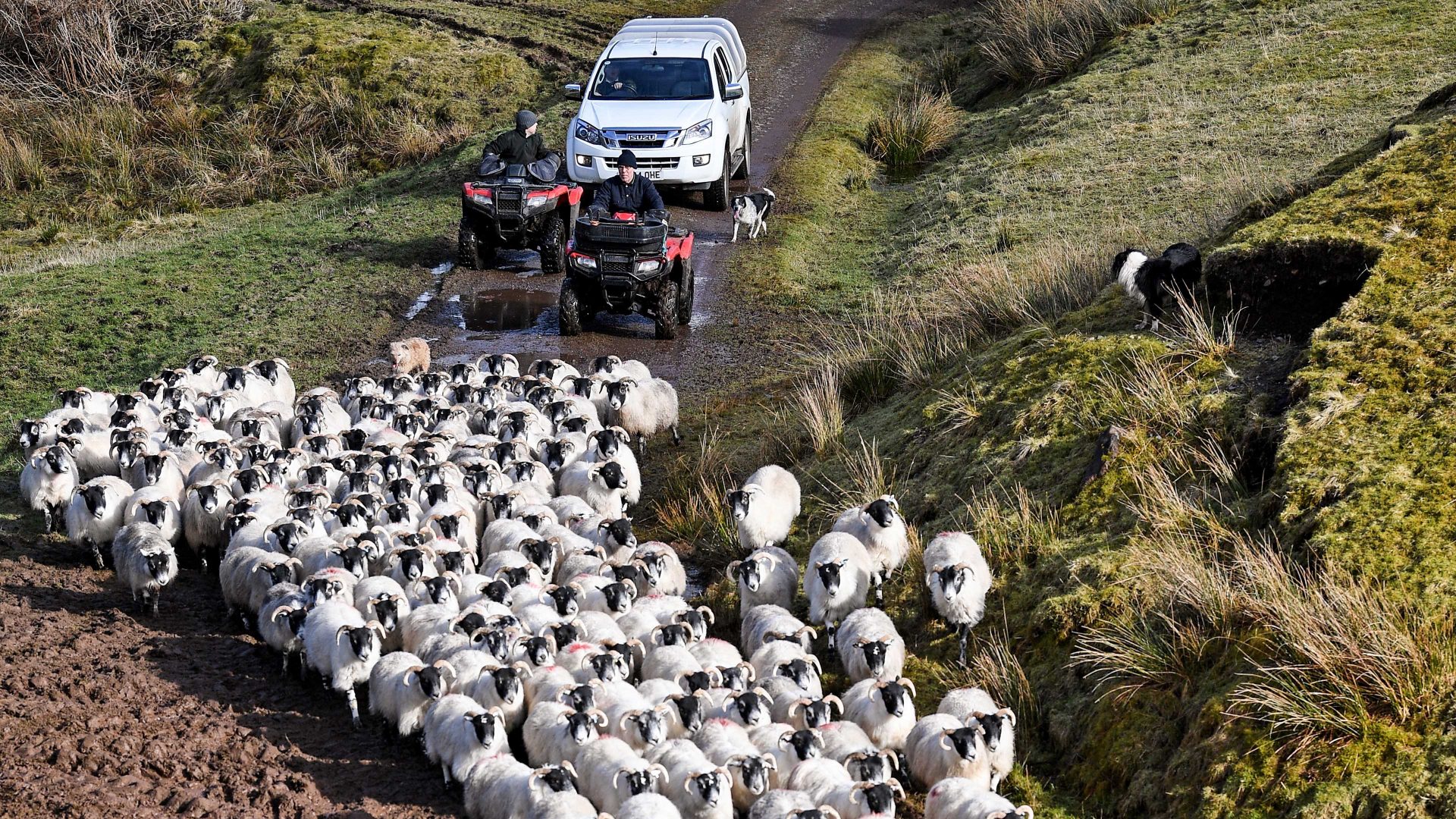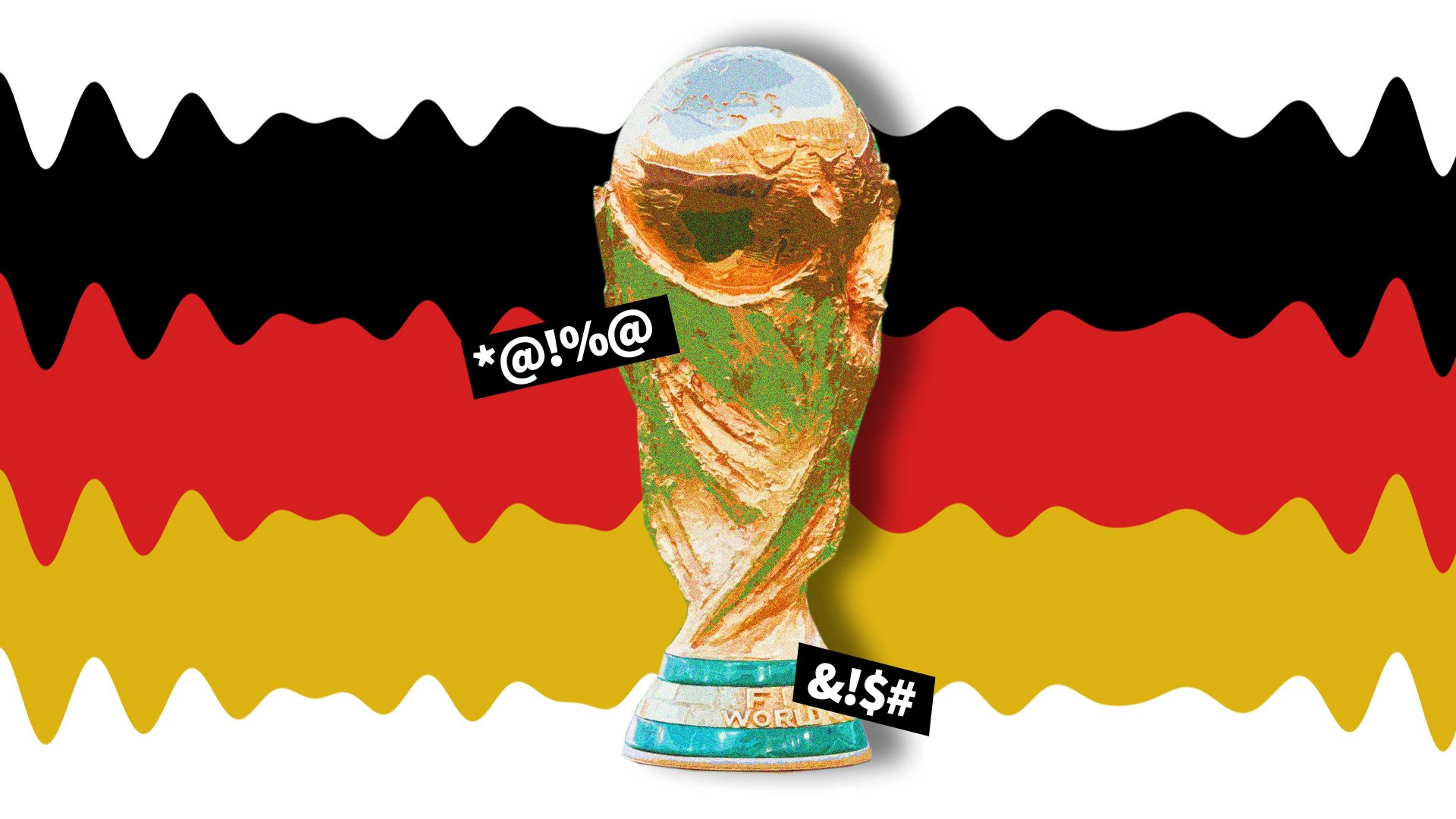It had to happen. One of them had to leave the sect and tell the world about what was really going on in the Church of Brexit. It took George Eustice, who was head of Defra at the time, to tell us what we already knew, but which the government has always denied.
Our trade deal with Australia was, he told the House of Commons, “not very good”, nor was the one with New Zealand. Why anyone could be fooled into thinking they were any good, when our chief negotiator, one Liz Truss (whatever happened to her?), basically asked her Antipodean opposite numbers what they wanted so she could sign a deal as soon as possible, is a mystery.
After years of being told Brexit was a free trade triumph, we now find out that when you are a) desperate and b) led by people with all the negotiating skills of a Neville Chamberlain, a disappointing result is guaranteed.
As Eustice now puts it “We did not actually need to give Australia nor New Zealand full liberalisation of beef and sheep. It was not in our economic interests to do so. And neither Australia nor New Zealand had anything to offer in return for such a large concession.”
Go tell the farmers! They already knew. The deal with Australia is quite amazing; as the National Farmers Union pointed out at the time, the deal allows for the “full liberalisation of dairy after just six years, sugar after eight years and beef and lamb after 15 years”.
That means there will be no limits on cheaper Australian foods, often produced to lower standards, which will start to flood the UK market in the years to come. The idea that the UK’s farmers can stand up to competition from an entire continent is a joke. Sugar beet, dairy, beef and lamb farmers will be devastated and there is nothing they can do about it.
Their chances of making up for the undermining of their own market, by a flood of cheap imports, by exporting more are non-existent. Exporting food to Australia and New Zealand is like shipping coals to Newcastle. Or as Minette Batters, president of the NFU, told me: “There are not that many people living there (in Australia and New Zealand) and they are 100 times more self-sufficient in what we might be exporting to them.” No wonder New Zealand television news broadcast incredulous reports from the UK about how Westminster had betrayed its own farmers to help exports.
If this was the only damage that Brexit was heaping on the back of the UK farm industry they might count themselves lucky, but it isn’t. Only about 53% of farmers voted for Brexit, almost exactly the same as the general population. But it has to be said that in many rural regions of England considerably fewer farmers voted to leave the EU than the average.
Even that vote did seem to present an amazing level of ingratitude, given that the EU had pumped money not just into farmers’ pockets but also into rural areas for decades, and in return for billions of pounds a year in subsidies all they had to do was fill in some boring forms.
It seems they were seduced, as was the rest of the country, by the effortless lies of the Brexit campaign. Even more free money for much less form-filling, fewer rules and regs and the same access to the EU market for their produce. In short, more free money for less bother, what’s not to like?
The NFU, knowing a snake-oil sales pitch when it sees one, campaigned to stay in the EU and its Common Agricultural Policy, but its members seem to have paid little heed. The result has been not just appallingly badly negotiated trade deals with huge rivals, giving them massive advantages over UK farmers, but a whole raft of other problems.
To be frank, it shouldn’t be difficult to improve on the CAP. It paid out £2.4bn a year to English farmers (agriculture is devolved, so Scottish, Welsh, and Northern Irish farmers get different deals), but half of the money went to the biggest farmers who make End of the road up just 10% of the industry. It has allowed the environment to be damaged for decades, kept inefficient farmers on the land with huge subsidies and forced up land prices – so blocking the entry of new, efficient farmers into the industry.
But the UK government now seems intent on making the situation worse, not better. It is phasing out direct payments based on production, which always paid the largest farms the most, and instead is introducing a series of payments based on environmental improvements. It sounds like a good idea. But…
Obviously, the farmers with most land have the greatest opportunity to introduce more environmental schemes, plant trees, rewild less productive land and so on. They will, therefore, once again get paid the most. As Batters explains, that also means smaller farmers cannot possibly make as much money out of these new environmental schemes as they used to under the old system. “Those smaller businesses are really going to struggle to recoup money at the same scale, in fact it is impossible for them to recoup money at the same scale as they did before,” she says.
Not only that, but the government has promised to maintain total payments at the same level as the CAP would have provided, although only until the end of this parliament. HM Treasury is doubtless slavering at the idea of getting some of that money back as soon as possible. Their finances are, after all, under terrible pressure and handouts to an industry that accounts for less than 0.5% of the British economy would make for easy pickings.
The prospects for smaller farmers are therefore grim, and there seems to be a direct contradiction between the government’s aim to increase food production and its aim to subsidise those who take land out of production. Many farmers are furious both about that and another major problem – the shortage of labour.
British farming, and especially fruit and vegetable farming, has long been dependent on foreign seasonal labour to bring in the crops. But post-Brexit immigration controls have meant that the industry cannot find enough workers and nor can the wider food sector, which is also dependent on immigrant labour.
A report earlier this year from the House of Commons Select Committee on Environment, Food and Rural Affairs found that in August 2021, the number of vacancies in the food and farming sector was 500,000, out of 4.1m jobs. One in eight jobs is not filled; that has meant £60m worth of food was left to rot in the fields last year, and even so Batters and the NFU can’t even get a meeting with the new home secretary, Suella Braverman, to discuss the issue. “We are still waiting for the seasonal workers scheme to be enlarged, it needs to be 60,000 people,” she says. “We haven’t managed to get into the Home Office to have that meeting.” Currently the seasonal workers scheme is limited to 30,000 workers, or half what the industry knows it needs.
Then, of course, there is a shortage of vets in the meat processing industry (many used to come from the EU to do this work), which has led to the slaughter and waste of tens of thousands of pigs. Farmers couldn’t sell them or get them to market, so they were just destroyed. Meanwhile, the government has also delayed the introduction of border checks on imported food, yet again.
This means the government is taking huge risks with the farming industry and the country’s food security. A recent spot check found illegal meat on 21 of 22 lorries stopped at the border. The chances of African Swine Fever or another devastating disease getting into the UK are now much higher than they were. Checks at the border are, post-Brexit, essential for the UK’s food security, and they are just not happening.
Just like the fishing industry, which was another poster boy for the Brexit campaign, farming in the UK was cast aside the second the referendum votes were counted. A government desperate to leave the EU at any price and which signed trade deals, no matter how bad, in a pathetic attempt to show that Global Britain really existed, has betrayed the industry. Its blind insistence on restricting immigration at all costs and its inability to control its own borders have just added insult to injury. The new agricultural support schemes designed to replace the Common Agricultural Policy once again pay large, often foreign-owned, farms the most. Smaller farmers, seeing their subsidy regime change for the worse, are left swinging in the wind.
Still, there is one bright spot. The Brexit ultras wanted to leave the EU with no deal and to remove all tariffs and quotas on foreign food imports, without even asking other countries to return the compliment. That would have destroyed farming as an industry in the UK overnight, leaving vast areas of scrubland across the country. Instead, we just have an industry with less support, fewer workers, lower food security and lousy trade deals.
This is not what farmers voted for, not what they want and not what they need, but it is what they are stuck with. And as Eustice has confirmed, at the moment it is the best they can hope for.




